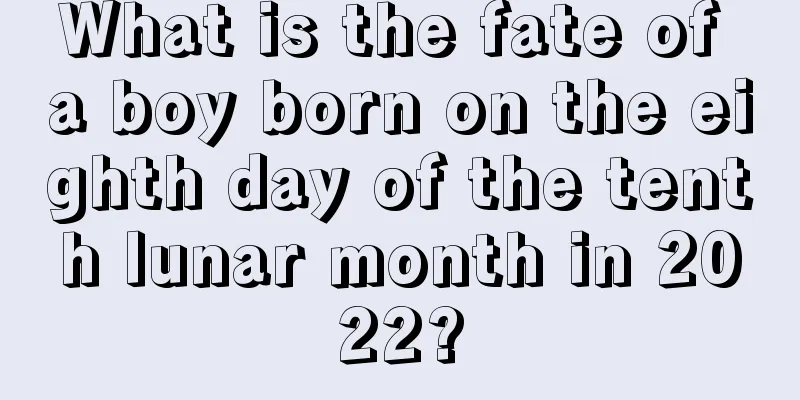What are the traditional customs of the Han Chinese New Year? How do the Han people celebrate the Spring Festival?

Introduction: my country is a unified multi-ethnic country. The Han nationality is the main ethnic group in my country. The Spring Festival is the most traditional and grand festival of the Han nationality. Some ethnic minorities also celebrate the Spring Festival. So, how do the Han people celebrate the Spring Festival? What are the customs of the Han Chinese during the Spring Festival? Let’s find out with the editor below! New year, new atmosphere, there are countless topics about the Spring Festival. If you want to know more about the Lunar New Year, please continue to pay attention to Mr. Shui Mo’s exclusive Spring Festival special articles for you!Burning Door God PaperIn the old days, on the third day of the New Year, pine and cypress branches and door gods and paper notes hung during the festival were burned together to indicate that the new year was over and it was time to start a new life. There is a proverb that goes "After burning the door god paper, you will have trouble finding your own way." Millet’s Birthday: People believe that the third day of the first lunar month is millet’s birthday. On this day, they offer sacrifices and pray for a good harvest, and do not eat rice.Little New YearThat is Tianqing Festival. A court festival in the Song Dynasty. In the first year of Dazhong Xiangfu during the reign of Emperor Zhenzong of Song, it was said that a book from heaven had descended to the earth. So Emperor Zhenzong issued an edict to designate the third day of the first lunar month as Tianqing Festival, and officials were given a five-day holiday. Later it was called Xiaonianchao, and people did not sweep the floor, beg for fire or draw water, just like Suichao.Post "Red Mouth"In southern China, people put up a "red mouth" sign on the morning of the third day of the Lunar New Year, as it is believed that quarrels are likely to occur on this day and it is not appropriate to pay New Year's greetings. The so-called "red mouth" is usually a red paper strip about seven or eight inches long and one inch wide, with some auspicious words written on it for safe entry and exit (the content has a certain format, for example: "On the third day of the first lunar month in the year of Jiaxu in 1994, when incense is burned in front of the gods, the nails at the front door will be broken, and all men and women will be red-mouthed, thieves will be stolen, and all disasters will be gone. May good luck return to heaven"). It is pasted on the top of the front and back doors, and another piece is placed on the garbage to be taken out and thrown away. These garbage are accumulated on the first and second days of the New Year. They must be cleaned up and thrown away on the third day. Otherwise, it would be like letting the gold, silver and treasures in the house flow out. In short, pasting the "Red Mouth" is to make people feel psychologically that they can travel safely throughout the year, without quarrels with others or various unfortunate disasters, and the family will have more wealth and treasure, and everything will be as they wish."Send New Year"Usually a farewell ceremony is held at night to send the gods and ancestors back to heaven. The fifth day of the first lunar month is commonly known as Po Wu. According to folk customs, many taboos before the fifth day of the New Year can be broken after this day. According to the old custom, people have to eat "water dumplings" for five days, which is called "boiled buns" in the north. Nowadays, some families only eat it for three or two days, some eat it every other day, but there is no one who does not eat it. This is true from the mansions of princes to the small households in the streets and alleys, and even when entertaining guests. Women no longer avoided visiting each other's homes and began to visit each other to wish each other a happy new year and congratulate each other. Newly married women return to their parents' home on this day. It is said that it is not advisable to do anything on the fifth day of the New Year, otherwise you will encounter failure in the whole year. In addition to the above taboos, the customs of the fifth day of the New Year mainly include sending away poverty, welcoming the God of Wealth, and opening the market for trade.Worship the God of WealthPeople in the south worship the God of Wealth on the fifth day of the first lunar month. According to folklore, the God of Wealth is the God of Five Roads. The so-called five roads refer to east, west, south, north and center, meaning that you can make money by going out of any of the five roads. Gu Lu of the Qing Dynasty wrote in "Qing Jia Lu": "The fifth day of the first lunar month is the birthday of the God of Road. Golden gongs and firecrackers, sacrificial animals and wine are all on display. In order to win a fortune, people must get up early to welcome him, which is called "receiving the God of Road." He also said: "Today's God of Road is the wandering god among the Five Sacrifices. The so-called five directions are east, west, south, north and center." In Shanghai, there is a custom of "grabbing the God of Road" during the old year. At midnight on the fourth day of the first lunar month, prepare sacrificial animals, cakes, fruits, incense and candles, ring gongs and drums, burn incense and worship, and worship the God of Wealth respectfully. It is commonly believed that the fifth day is the birthday of the God of Wealth. In order to compete for profits, people welcome him on the fourth day, which is called "抢路头" or "迎财神". The Five Sacrifices are the household gods, kitchen gods, earth gods, door gods and travel gods. The so-called "Lu Tou" refers to the god among the Five Sacrifices. When welcoming the God of Wealth, one must offer a sheep's head and a carp. Offering a sheep's head means "good luck", while offering a carp means that "fish" and "surplus" are homophones, which is auspicious. People firmly believe that as long as they can get the appearance of the God of Wealth, they will become rich. Therefore, every Chinese New Year, people open the doors and windows, burn incense, set off firecrackers, and light fireworks at midnight on the fifth day of the first lunar month to welcome the God of Wealth. After receiving the God of Wealth, everyone has to have a road-opening wine feast, which often lasts until dawn. Everyone is full of hope of getting rich, hoping that the God of Wealth can bring gold, silver and treasures to their homes and make them rich in the new year. It is commonly believed that the earlier you receive the road head, the better. The first one to receive it is the true god and is particularly effective, hence it is called "抢路头". In some places, people really "rush to get ahead" on the fourth day of the New Year, and it has become a custom. Since the road god was no longer a protector of travelers, people no longer worshipped him when traveling. In the north, there is also a custom of eating dumplings as a sign of wealth and fortune. Lu Toushen Lu Toushen is a god of wealth worshipped in Wu. It is customary to regard the fifth day of the lunar month as his birthday, and to celebrate it with sacrifices and sun-drying ceremonies is quite spectacular. Lu Tou is also known as the "Five Road Gods". It is said that at the end of the Yuan Dynasty, there was a He Wulu who died in the fight against foreign invaders. People therefore worshipped him as a god and named him "Wulu God". But this Five Roads God seems to have nothing to do with the Five Roads Gods of Lu Tou, who is the God of Wealth. Some people believe that the Five Road Gods are actually the Five Holy Gods, or the Five Tong Gods. After Tang Bin destroyed the Wutong Temple on Shangfang Mountain during the reign of Emperor Kangxi, people did not dare to worship the Wutong God, so they changed its name to Lu Tou and worshiped it. This road is generally regarded as the traveling god among the five ancient sacrifices. The so-called five roads are east, west, south, north and center. All wealth and goods travel by road, so people regard the traveling god as the god of wealth and worship him carefully, hoping that he will bring money into the house or make a profit when traveling. In ancient times, when people traveled, they would offer sacrifices to the road god in order to pray for safety. This was the custom of "Zudao". In the Wu custom, when people met someone on the road, they also offered sacrifices to the road god, and this road god became the god of wealth. The God of Roads became the God of Wealth due to the development of commerce and the intensification of the circulation of wealth. Wealth and goods travel between land and water, and people intuitively believe that roads somehow control wealth and goods. As for why people worship the God of Roads on the fifth day of the first lunar month and regard this day as his birthday, it is because the "five" among the Five Gods of Roads is related to the "five" in the fifth day of the first lunar month. The same is true in the north, where people offer sacrifices to the "Five Poor" on this day. It is in the first month rather than other months, in order to usher in a new atmosphere for the new year, to wish for a prosperous year, with abundant financial resources, and wealth coming from five directions: east, west, south, north and center.Send away poverty"Sending away poverty" on the fifth day of the first lunar month is a very distinctive seasonal custom among the ancient Chinese people. The meaning is to sacrifice to the poor ghost (the god of poverty). A poor ghost, also known as a "poor son". According to Sui Shi Guang Ji by Chen Yuanliang of the Song Dynasty, citing Wen Zong Bei Wen, "During the time of Emperor Zhuanxu Gao Xin, a son was born in the palace. He did not have complete clothes and was known as the Poor Son in the palace. He died on the last day of the first lunar month and was buried in the palace. People said to each other, 'Today we are sending off the Poor Son.'" According to legend, the poor ghost was the son of Zhuanxu. He was weak and short, and liked to wear tattered clothes and eat porridge. Even if he was given new clothes, he would tear them or burn holes in them before wearing them, so he was called the "poor son" in the palace. On this day, each family makes a woman out of paper, called "Sunshine Sweeping Lady", "Five Poor Women" or "Five Poor Lady". She carries a paper bag on her back and sweeps the dirt in the house into the bag, which is then sent outside the door to be blown up with firecrackers. This custom is also known as "sending away the poor soil" or "sending away the poor wife". In Hancheng, Shaanxi, people are forbidden to go out on the fifth day of the New Year. Instead, they roast fresh meat in a pan and stir-fry dried potatoes until they crack and make noises. They believe that this can help get rid of poverty and bring in wealth. In addition, in the old days, people would eat especially well on New Year’s Eve or the fifth day of the first lunar month, commonly known as "filling the poverty pit." The widely popular custom of sending away poverty reflects the traditional Chinese people's desire to bid farewell to the old and welcome the new, to bid farewell to the poverty and hardship of the past and to welcome a better life in the new year.OpeningAccording to the old custom, during the Spring Festival, all shops, big and small, are closed from the first day of the Lunar New Year and reopen on the fifth day of the first lunar month. It is customary to regard the fifth day of the first lunar month as the holy day of the God of Wealth, and to believe that choosing this day to open the market will surely bring in wealth and fortune. Summary: The above article is a detailed introduction to the customs and traditions of how the Han nationality celebrates the Spring Festival. You can learn about it and feel the charm of the traditional Han culture!After reading this article, there are more exciting content in the Spring Festival special topic, let’s take a look! |
<<: Where to travel during the Spring Festival? A must-see snow destination for southerners
>>: What taboos should we pay attention to on New Year’s Day in southern China?
Recommend
Is the Double Ninth Festival on the ninth day of the ninth lunar month in 2019 not suitable for getting married?
Is the Double Ninth Festival on the ninth day of ...
Is it a good idea to move during Torch Festival 2021? What should we do on this festive day?
In the scorching hot summer of July, the 24th day ...
What is the day like on the second day of the eleventh lunar month in 2020? Can the funeral be held?
Different days have different pros and cons. So, l...
What are the taboos on the 22nd day of the first lunar month in 2020?
What are the taboos on the 22nd day of the first ...
Why can’t we get married in Frost Descent in 2020? What are the three phases of Frost Descent?
Introduction: The days of the Frost Descent solar ...
Where is the direction of the God of Happiness on June 29, 2017?
1. What day is June 29th in the lunar calendar of...
Feng Shui matters that need attention during Qingming Festival
Introduction: Qingming Festival is a festival for...
Is it suitable to travel on August 28th of the lunar calendar in 2021? How auspicious or inauspicious is it?
There are some days in the 365 days of a year when...
2020 Lunar New Year Lantern Festival God of Happiness Lucky Position Query, Lantern Festival Riddles Origin
Introduction: The lucky position of the God of Hap...
Is it suitable to get a haircut on the 20th day of the fifth lunar month in 2019? Is it a good day to get a haircut?
According to Chinese folklore, in the fifth month ...
What is the fate of people born in the twelfth month? How to name people born in the twelfth lunar month?
Introduction: Although every child cannot choose t...
Is the 28th day of the first lunar month in 2020, the Horse Day, a good or bad day? Is it an auspicious day?
Every day is meaningful, with different fortunes, ...
Detailed explanation of the fortune of girls born on the 12th day of the third lunar month in 2022
The third month of the lunar calendar is the last ...
Is the Chinese New Year’s Eve on the 24th day of the twelfth lunar month in 2019 a good day?
Is the Chinese New Year’s Eve on the 24th day of t...
The 26th day of the first lunar month in 2019 is a good day?
When the first month of the lunar year arrives, e...









